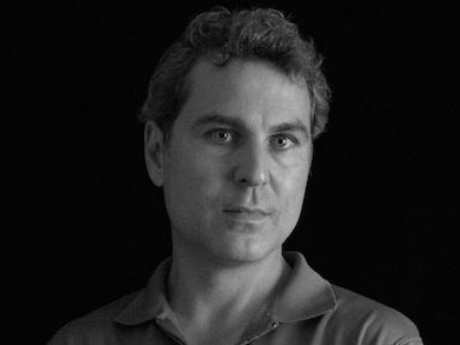In Their Own Words
Rodney Koeneke's “I Should Feel Happy”

I Should Feel Happy
I should feel happy, but I can't.
Life is an uneven way—cranes
flap over the mountain tarn,
dew condenses on the lichens:
very overwhelming!
Sitting on a cloud or hill
covered by other clouds, watching the cranes
form into a vee beneath me:
When will I know? How will I know it?
I have the most awesome friends ever,
I am not happy at all.
Tears cover my face, drown my heart
why can't you write English
like a song that is played over radio
and makes me hurt inside?
I hate my roommate, don't have any money
my plans are easy but won't come down smoothly
through the wet arcades of the firs.
I am a little afraid
of what it will feel like
when she isn't here and I am alone
with musicians who will overstay their welcome.
By the time we're there
you, too, will be weary
of my eloquence, the easy rapture
I once got from your eyes
will dissipate into bulbous clouds
over the midday sky, it overcast
and the musicians continuing to sing.
I am not happy alone with the cranes
I drink to assure many people
of the light in the tavern of your eyes
I drink to assure them
its mild intoxication
was simple because of your eyes.
From Eturia (Wave, 2014). Reprinted with the permission of the author.
On "I Should Feel Happy"
I work at a big state university: cement parking structures, orange construction mesh, scuffed stairwells that lead to halls where the clocks tell different times. Near campus there's a bubble tea place run by a friendly Asian couple. One day someone taped a piece of college-ruled paper to the wall with the question, "How Do You Feel?" written in ballpoint pen across the top.
The responses surprised me. Customers had added the most heartfelt and guileless statements to this mysterious on-the-fly survey. They wrote about roommate troubles, homesickness, test stress, loneliness, friends—the standard basket of student woes. Most answers were anonymous, some written or signed in Chinese. It got me thinking about how simple it is to express feelings on a café wall or comment box once the 'I' gets tucked away, and how tricky it can be in modern American poems.
In other poetic traditions—say, classical Chinese lyrics or Elizabethan sonnet crowns—clarity of sentiment is one of the form's great strengths. Though there too, the 'I' can be just as firmly tucked away behind a common stock of tropes and images the culture recognizes as "poetic."
I thought it'd be fun to write a poem as if from behind one of those traditions—cranes in a vee, tears drowning hearts, intoxicating eyes, etc. The trick was to try and get some of the genuine but generic sentiments on the café wall into a poem that felt generic but genuine. Like "poetry voice" in reverse: instead of prosy lines delivered as if every. Word. Is charged. With meaning, I shot for lines that sounded poetic to the point of cliché, tossed off with the unselfconsciousness of that prose in the student café.
The borrowings are ersatz and promiscuous: Urdu, a dash of pastoral, some faux Chinese. That seemed right somehow for a place that serves bubble tea, bento boxes, and bagels. I wanted the poem to stay one step ahead of the codes I imagined for it, a little mistranslated, making the best of not being at home.


